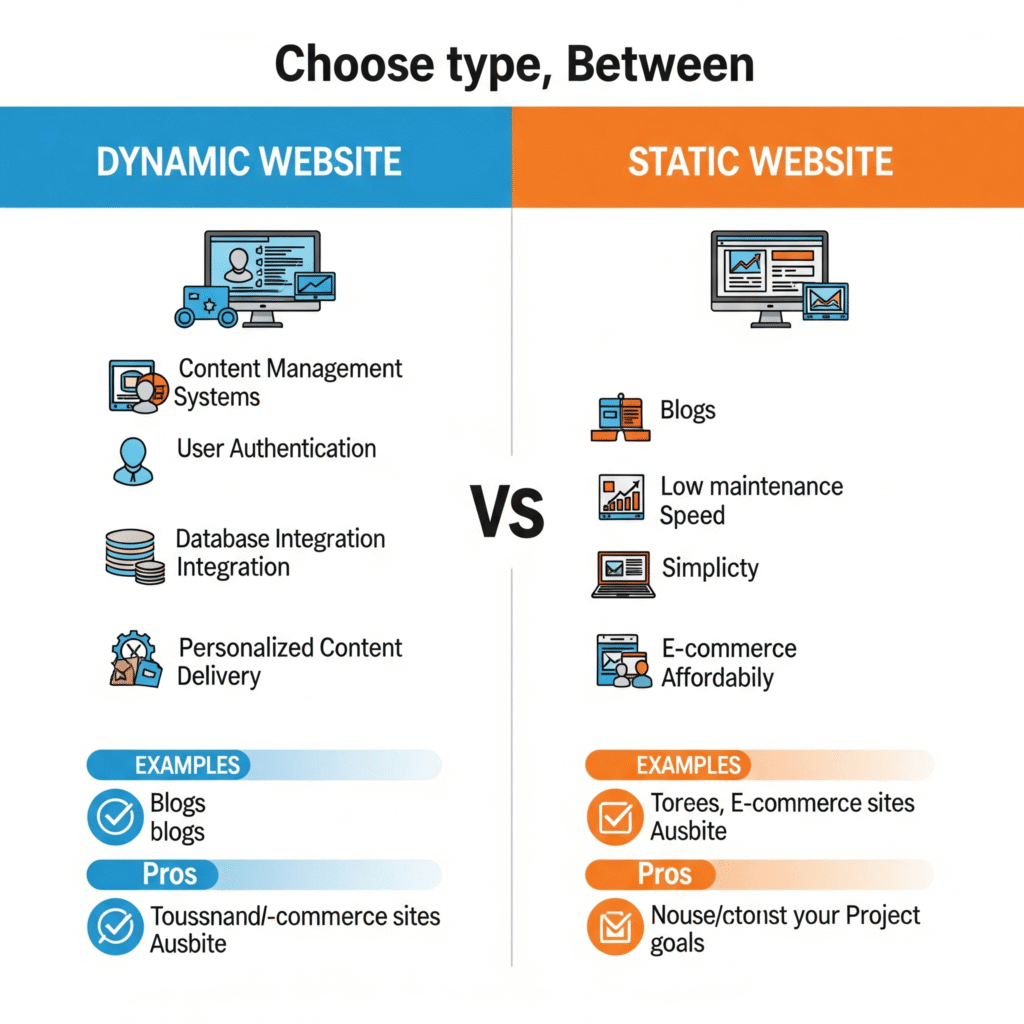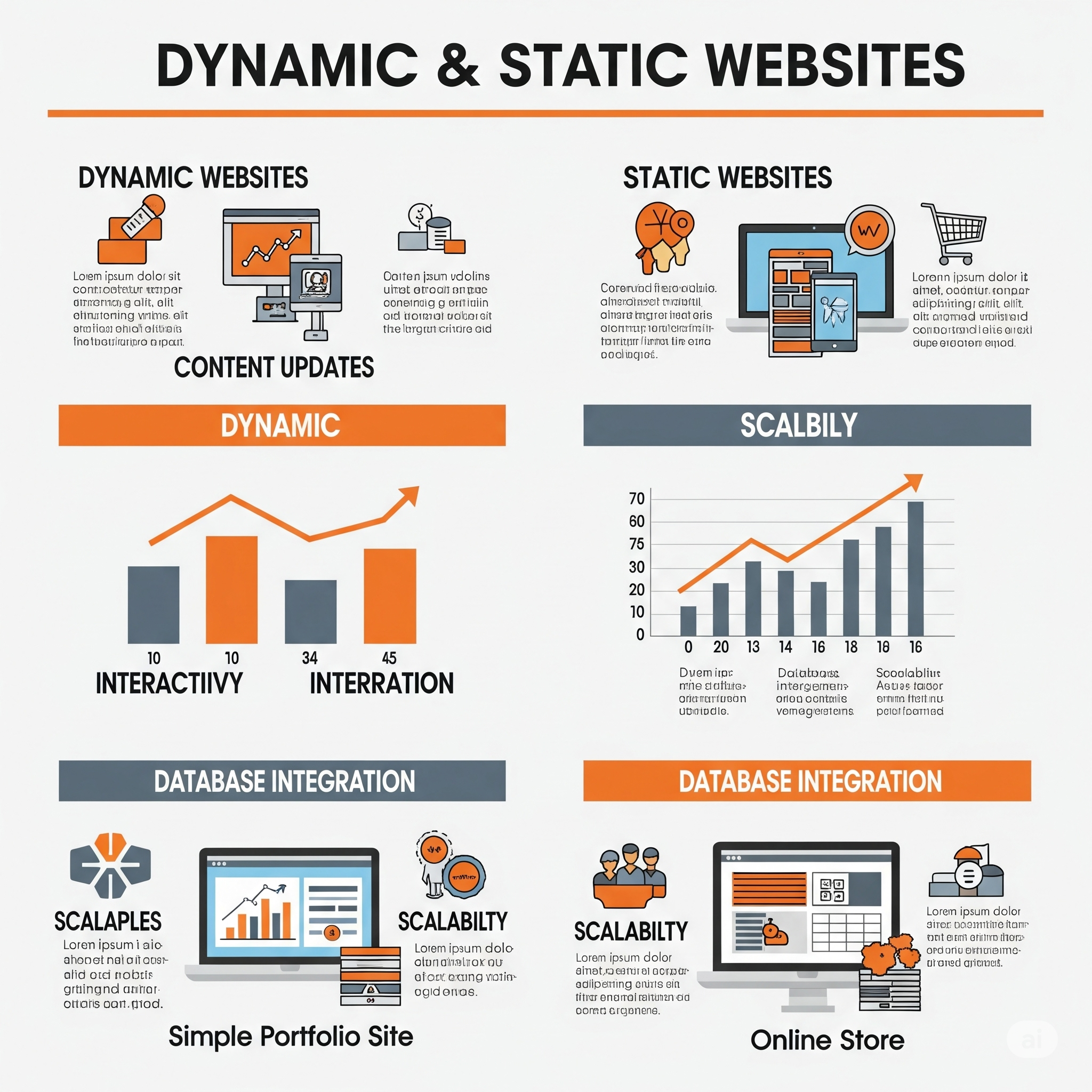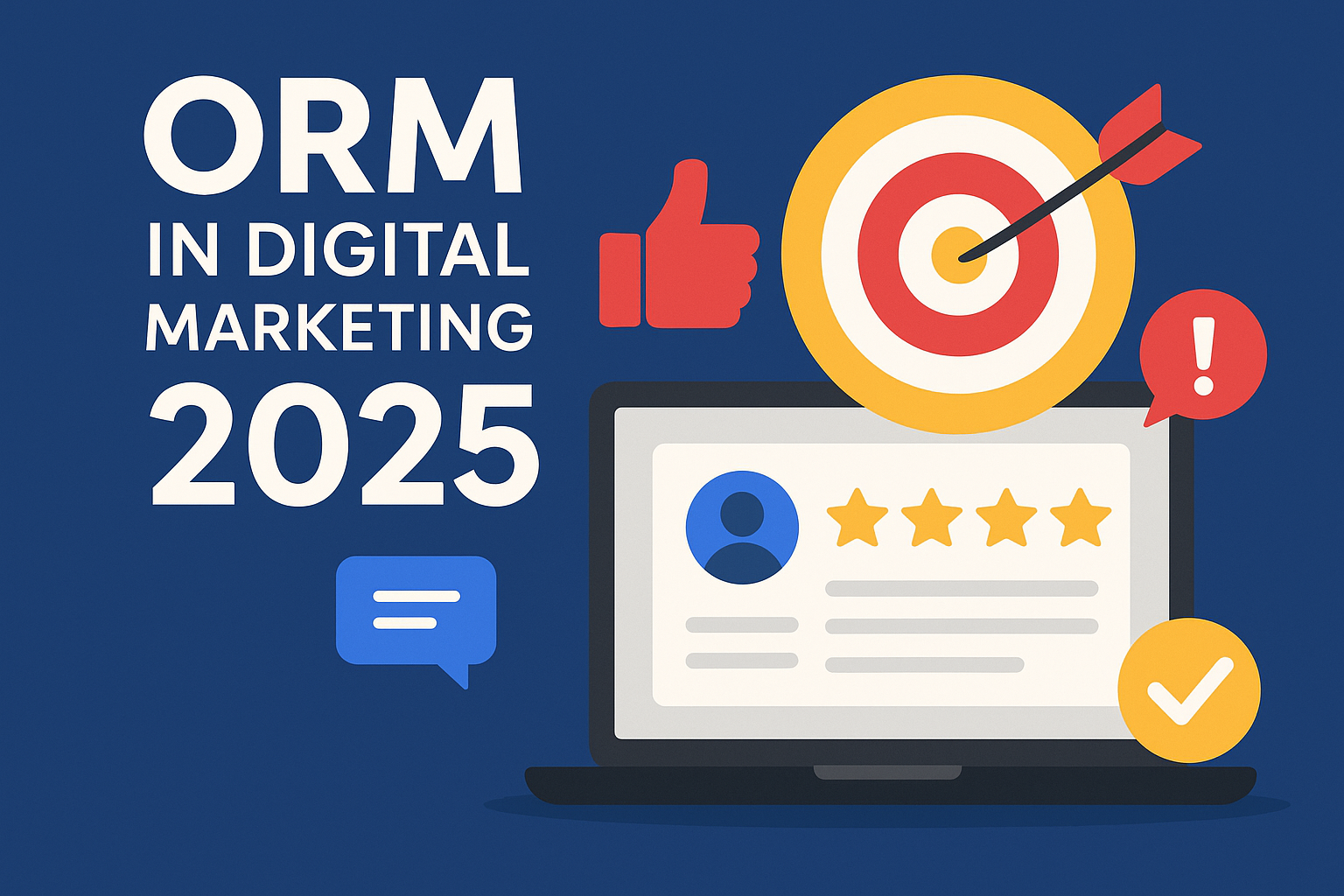If you are planning to build a website for your business or personal use, understanding the difference between a dynamic website and static website is very essential for Choosing the right type can be important for your website’s performance, user experience, SEO, and functionality
What is a Static Website?
A static website is a collection of fixed web pages coded using HTML, CSS, and sometimes JavaScript. Each page exists as a separate file stored on the server, and whenever a user requests a page, the server easily delivers that file.
Characteristics of Static Websites:
- The Pages have fixed content
- There will be No database interaction
- It is Simple to create and host
- It Changes require manual updates to files
- It requires faster loading times due to minimal server processing
Examples of Static Websites:
- It can be Personal Portfolio Websites
- It can be Small Business Landing Pages
- It can be Brochure-style Websites
- It can be Event Promotion Pages

What is a Dynamic Website?
A dynamic website is more complex and interactive. It uses server-side languages like PHP, Python, or Node.js along with databases (such as MySQL) to generate content in real time based on user interaction or other factors
Characteristics of Dynamic Websites:
- The Content is generated dynamically
- It will be Connected to a database
- It Allows user interaction like (forms, login, etc.)
- It makes Easier to manage large websites
- It Can update content without changing the code manually
Examples of Dynamic Websites:
- It can be a E-commerce Stores
- A Social Media Platforms
- A Blogs with Content Management Systems (CMS) like WordPress
- A Membership Portals
Dynamic Website and Static Website: Key Differences
| Feature | Static Website | Dynamic Website |
|---|---|---|
| Content Delivery | Pre-written, fixed content | Generated in real-time |
| Database Integration | Not required | Required for content management |
| Development Complexity | Simple | More complex |
| Cost | More affordable | Higher development and maintenance costs |
| User Interaction | Minimal | High (e-commerce, forums, etc.) |
| Best For | Small sites with few pages | Large, interactive, scalable websites |

Advantages of Static Websites
- Speed and Performance: The Static websites load faster as there’s no database or server-side processing.
- Cost-Effective: Hosting cost is minimal good for low budget businesses
- Security: There is no server side vulnerabilities
- Ease of Deployment: You can quickly upload files to any web hosting service
Disadvantages of Static Websites
- It will be difficult to manage if the site has hundreds of pages
- It requires Requires developer assistance for updates
- It has Limited functionality
Advantages of Dynamic Websites
- Scalability: It is Perfect for growing businesses requiring frequent content updates or user interaction.
- User Engagement: It Supports features like forms, accounts, shopping carts, etc.
- Content Management: With a CMS like WordPress, even non-technical users can update the site.
- Personalization: The Dynamic sites can deliver personalized content to different users
Disadvantages of Dynamic Websites
- It is More expensive to develop and maintain
- This will take Slower loading times if not optimized
- The Higher security risks (requires regular updates and security measures)

Which One Should You Choose: Dynamic Website or Static Website?
Choosing between a dynamic website and static website depends on your specific needs:
Choose a Static Website if:
- If You need a simple, fast-loading website
- If Your content rarely changes (portfolio, brochure site, event page)
- If You have a limited budget
- If You don’t need user interaction (forms, logins, etc.)
- If You want better security with minimal maintenance
Examples:
It can be Freelancer portfolios
It can be Small business landing pages
It can be Event announcements
It can be Product showcase pages
Choose a Dynamic Website if:
- If You need frequent content updates (blogs, news sites)
- If You require user interaction (logins, forms, comments)
- If You want to scale the website in the future
- If You plan to use a CMS like WordPress for easy management
- If You need e-commerce functionality
Examples:
- It can be E-commerce stores
- It can be Blogs and news portals
- It can be Social media platforms
- It can be Membership sites
SEO Considerations: Static Website vs Dynamic Website
SEO (Search Engine Optimization) is essential for both website types, but their structures affect SEO differently.
Static Website SEO Benefits:
✔ Faster page load speeds, and ranking factor
✔ Clean, and crawlable code
✔ Minimal technical errors
Limitations: Updating meta tags, content, and structure requires manual changes, which is time-consuming for large websites
Dynamic Website SEO Benefits:
✔ Easy to update meta tags, content, and URLs through CMS
✔ Advanced SEO plugins for platforms like WordPress
✔There is Personalized content to improve engagement
Limitations:
- Risk of slow loading of the website if not optimized
- Security vulnerabilities can affect rankings if not addressed

Final Thoughts: Dynamic Website and Static Website
In conclusion, both dynamic websites and static websites have their advantages and limitations. Your choice depends on your business needs, technical knowledge, budget, and future growth plans.
Static websites are ideal for small, informational sites, while dynamic websites are perfect for interactive, scalable, and content-rich platforms.
If you are serious about building a successful online presence, consider both options carefully. For businesses looking to grow and engage customers, investing in a dynamic website often provides better long-term benefits, especially when combined with a robust SEO strategy.
Frequently Asked Questions (FAQs)
-
Q1. Is a blog a static or dynamic website?
A blog is usually a dynamic website as it uses a CMS like WordPress, allowing for easy content updates and user interaction.
-
Q2. Are static websites outdated?
Not at all! Static websites are still relevant for simple projects, landing pages, portfolios, or sites where content changes rarely
-
Q3. Which is better for SEO, dynamic or static websites?
Both can perform well in SEO. Static sites have speed advantages, while dynamic sites allow for better content management and personalization, essential for long-term SEO.


